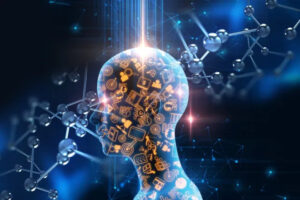 The rapid advancement in the field of artificial intelligence (AI), has led to widespread speculation about its potential to revolutionize various industries. While AI holds promise for enhancing productivity and efficiency, there are concerns that it might eventually lead to job displacement across sectors. In this article, we’ll delve into the nuances of how artificial intelligence could potentially take jobs away and explore strategies for individuals and societies to adapt to this changing landscape. According to Al Jazeera, back office operations like Human Resource (HR) will be among the first to go.
The rapid advancement in the field of artificial intelligence (AI), has led to widespread speculation about its potential to revolutionize various industries. While AI holds promise for enhancing productivity and efficiency, there are concerns that it might eventually lead to job displacement across sectors. In this article, we’ll delve into the nuances of how artificial intelligence could potentially take jobs away and explore strategies for individuals and societies to adapt to this changing landscape. According to Al Jazeera, back office operations like Human Resource (HR) will be among the first to go.
The Rise of AI: Transforming Industries
Artificial intelligence has already made significant inroads into various industries, from manufacturing and logistics to healthcare and finance. Automation, a subset of AI, has led to the streamlining of many processes, reducing errors and increasing productivity. However, as AI systems become more sophisticated and capable of handling complex tasks, there is a growing apprehension about its potential to replace human workers.
Job Displacement vs. Job Transformation
It’s important to recognize that the impact of AI on jobs isn’t as simple as replacing humans with machines. While some jobs may indeed become obsolete due to automation, new roles and opportunities will likely emerge. Historically, technological advancements have led to the creation of novel job categories that were unimaginable before. For instance, the rise of the internet gave birth to roles such as social media managers, data analysts, and app developers.
Vulnerable Sectors
Certain sectors are more susceptible to AI-driven job displacement than others. Routine and repetitive tasks are most likely to be automated, affecting jobs in manufacturing, data entry, and customer service. However, roles that require complex decision-making, creativity, emotional intelligence, and human interaction are less likely to be fully replaced by AI. These include professions in healthcare (doctors, therapists), education (teachers, mentors), and the arts (writers, musicians).
Preparing for the Transition
Governments, businesses, and individuals have a role to play in preparing for the potential impact of AI on jobs:
- Education and Reskilling: Lifelong learning and upskilling are crucial to adapting to changing job landscapes. Encouraging workers to acquire new skills that complement AI can enhance their employability and open doors to emerging roles.
- Human-AI Collaboration: Embracing a collaborative approach where AI augments human capabilities rather than replaces them can lead to greater productivity and innovation. For example, radiologists can work alongside AI systems to improve medical diagnoses.
- Entrepreneurship and Innovation: AI-driven disruption can also create opportunities for entrepreneurial ventures. Identifying gaps in the market and leveraging AI can lead to the creation of new businesses and industries.
- Safety Nets and Social Policies: Governments can implement social safety nets to support workers who are displaced due to AI. Policies such as universal basic income or job placement programs can help ease the transition.
Ethical Considerations
The adoption of AI also raises ethical questions about data privacy, bias, and accountability. Ensuring that AI systems are transparent, fair, and accountable is essential to building trust in their capabilities.
Conclusion
While the potential for AI to take jobs away is a valid concern, history has shown that technological advancements can both eliminate and create jobs. The key lies in proactive adaptation through education, reskilling, and a mindset that embraces collaboration between humans and AI. By focusing on harnessing the power of AI to enhance our capabilities, we can navigate the changing landscape of work and build a future that benefits both individuals and society as a whole.
Al Jazeera: Will AI take your job? | Start Here
Ref: https://www.youtube.com/watch?v=Z1U9CS8Z-2U

